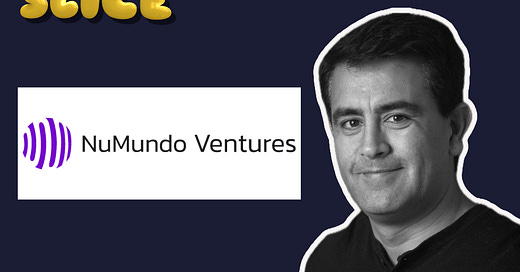In Latin American venture capital, there's a script. It starts with Stanford or Harvard, maybe an MBA. English fluency. A clean resume. Ideally, a few years at McKinsey. Ivan Montoya never read the script.
Born in Colombia and raised in Silicon Valley, he's the solo GP behind NuMundo Ventures, a pre-seed and seed-stage fund investing in Latin American fintech, property tech, and supply chain startups. While most funds in the region are still betting on polished pedigrees, Ivan is betting on overlooked potential.
His best example? A founder he calls "the Mexican Bill Gates."
"I didn't even have the fund yet," Ivan recalls. "So I put in $20K of my own money. After I closed my first fund, I wired him $150K. Eight months later, another $150K."
That founder, Mairon, had no college degree. No connections. No VC polish. Every other firm in Mexico passed.
Fast forward to today: $30 million ARR, $25 million raised in equity, Series B closed. And still, most of his capital came from the U.S. and Brazil, not Mexico.
"When I met Mairon, I just thought…I can do something different here."
Latin American venture capital has long followed what Ivan calls "central casting"—looking for founders with specific profiles.
"Most VCs here look for a certain founder profile," he explains. "Someone who went to a top school in the U.S., speaks English well, because at some point, they'll probably need to raise from U.S. investors."
This approach has produced winners. Look at Nubank (David Vélez, Stanford GSB) or MercadoLibre (Marcos Galperin, Stanford GSB). But it's also narrow.
"There's a kind of 'central casting,'" Ivan says. "And if you don't fit, it's very hard to raise money."
The result? Massive blind spots where exceptional founders get filtered out before they ever reach decision-makers.
As a solo GP, Ivan has structural advantages that larger funds can't replicate.
"In Latin America, Mairon would've met the most junior person at a fund, if he got the meeting at all," Ivan explains. "Then that person has to convince a partner. But the partner doesn't know him, and he hasn't been to college, so… they pass."
Emerging managers like Ivan are pattern-matching on different signals: hustle, market insight, execution ability. They're finding exceptional founders that the traditional playbook misses.
Ivan's success reflects his broader thesis about timing. He believes Latin America is entering its "Fairchild Semiconductor moment” that generational inflection point when ecosystems mature and start producing exponential outcomes.
"Fairchild kicked off a cycle in Silicon Valley: 1962 to 1977," he explains. "I think Latin America started its cycle with Nubank, around 2010. Now we're in 2025, 15 years in."
If he's right, emerging managers are perfectly positioned to capture this wave. They have the flexibility to bet on unconventional opportunities and the time to develop deep conviction.
The Latin American venture ecosystem is evolving rapidly. While established funds continue to play important roles, emerging managers like Ivan are proving that size isn't always an advantage.
For founders who don't fit traditional molds, emerging managers offer an alternative path to capital. For investors looking at Latin America, emerging managers offer access to deals and perspectives that larger funds might miss.
The next wave of Latin American unicorns might not come from central casting. They might come from emerging managers willing to bet on overlooked potential…just like Ivan.
Special thanks to Sahej for introducing us to Ivan.












Share this post